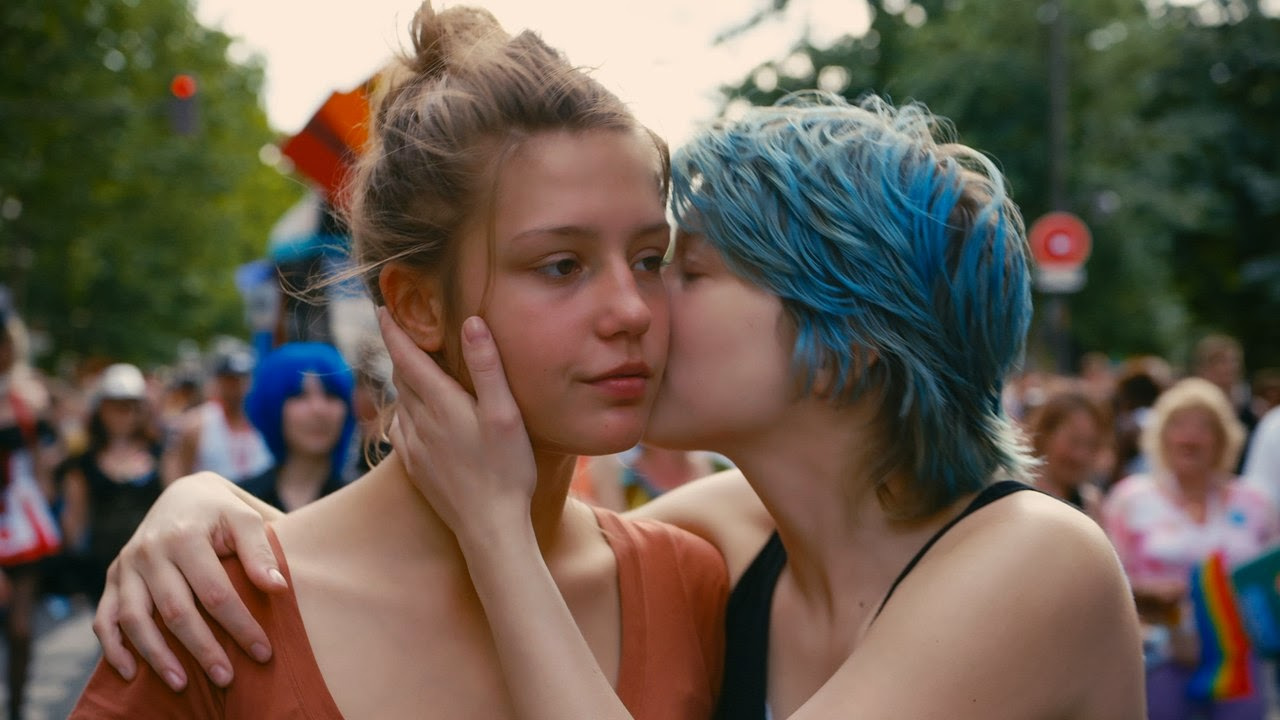
The outset of sexual expression takes place during the very early stages of existence and affects life timelessly in multiple levels. Cinema, as a mirror of life, reflects the sexual urges and almost never lacks in erotic scenes.
Over time, an abstract way of approaching sexuality topics evolved to something more direct, and thanks to pathfinder directors, cinema became a vehicle to reconsider social taboos and have a deeper, inquisitive look within human nature. Let’s dive into some of the best films that focus on sexuality:
20. Call Me By Your Name (2017)
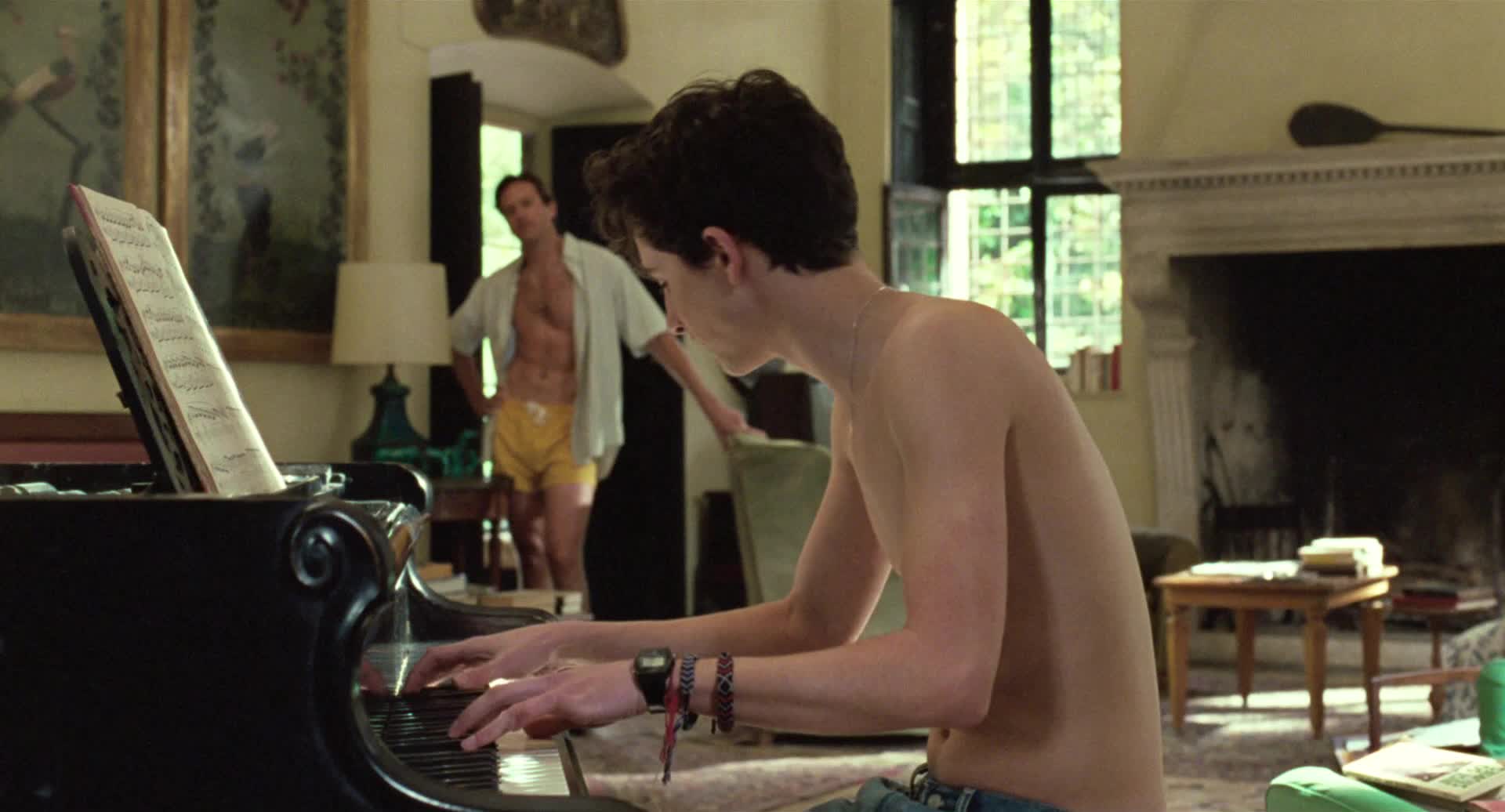
The subject of homosexuality has been observed under a wide optical spectrum in the seventh art. However, director Luca Guadagnino succeeds in adopting an authentic perspective, whereas he deals with sexual curiosity, investigation and unprecedented experience with a perceptive and elegant approach.
The space-time frame is set in Northern Italy during the early 80s, where Elio, a boy at the peak of his adolescence, has been motivated to explore his body and accede to his physical desires by an inspirational friend of his parents. Elio’s naïve mental wandering through lust and emotion leads to the formation of a pure romantic relationship, established by the originality and dramatization of youth.
An exhilarating, sensual build-up rises to the emblematic phrase of this movie: “Call me by your name and I’ll call you by mine.” This phrase centralized the substance of this movie; the absolute beauty of sharing one body, the utter conquest of coexisting.
The creators produce an artful environment configured by brilliant symbolisms, inspired by nature and ancient Greek culture, in combination with pleasing pictures, harmonically synthesized by geometry and color. “Call Me By Your Name” appeals intensively to the senses, mind and soul, deserving a place amongst the all-time memorable films.
19. Strella (2009)

Stella, a young transgender woman, struggles to make a living from prostitution in the impoverished neighborhoods of Athens, having regular interactions almost exclusively with other transgender and homosexual people. Her close friends call her “Strella,” a fusion of her name and the word “trela” that means “madness” in Greek.
In a cheap hotel she meets an older man who has just been released from prison. Their erotic relationship becomes the motive for a common effort to discover and define their personal character. Through this procedure, Strella seeks companionship, love, and principally, acceptance.
Resetting the preconceived sexuality comprises a courageous and complex action that flows from strong inner forces and requires long-term internal exploration. Strella attempts an eternal, rough course determined by the emotion and spontaneity of a life lover, while she tries to claim and defend her identity. She battles to satisfy essential human needs in a world unwilling to accept dissimilitude.
The creator, Panos H. Koutras dares expose the indissoluble fight of people who differ, for values that are granted for others. The story points out that life is simultaneously terribly complex and simple. Every human being is primitively regulated to experience and grasp every physical and mental pleasure, above the societal norms.
18. Mommy (2014)
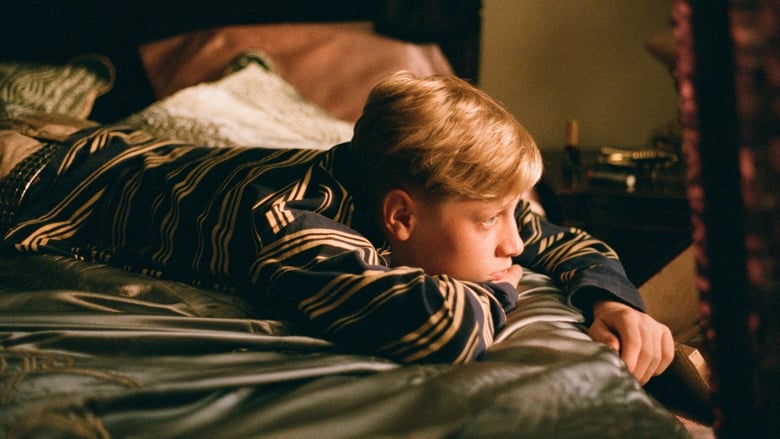
A movie made by a young director, for young people. Xavier Dolan manages to handle a timeless issue, as it has been currently formed by composing a realistic modern environment with fashionable aesthetics and his own artistic style. Finally, Dolan exposes with the most original way the distractions and confused instincts of not sufficiently parented adolescents.
A 15-year-old boy who faces trouble with the law returns home. His mother’s life seems to be disturbed, while she appears to be incapable of dealing with her son’s violent behavior. Every choice of the teenager is evidence of his unsettled and bothered mental situation. The mother tries to appease her son with the ways that she is familiar with. However, the efforts on her part as an uneducated, breadwinner woman go in vain.
As the relationship evolves, it became clear that the problem is deep and set at the foundation of the mother and son relationship. A child, never taken into account as it is required, now experiences the transitional period to manhood. According to a Freudian interpretation, he claims the love he has been deprived of, with outbreaks of violence and a foggy erotic-caring attitude oriented to his mother, the leading female presence in his life and the first woman who may reject him.
17. The Dreamers (2003)
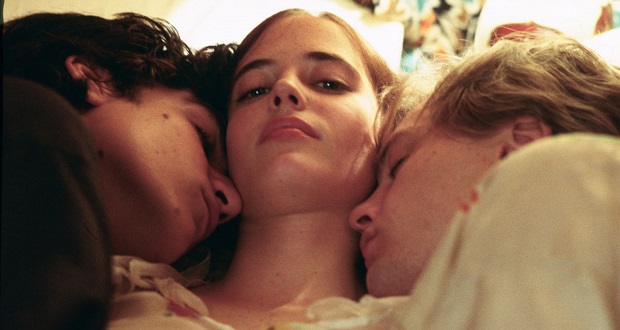
Probably the most controversial film from Bernardo Bertolucci and furthermore one of the most controversial pieces of the seventh art in general. Despite the flagrancy and unconventional spirit that this movie lets out, spinning around the dominant presence of Eva Green, a more questioning observation of the “Dreamers” is necessary.
France, 1968: a setting interweaved with revolution, social change and rush of the young and passionate people. A brother and sister have created a private world, confined in the limits of their cultural particularity and unusual aspect of life. The entrance of an American friend who follows the irreconcilable lifestyle of the siblings is the external force to disorder the balances and bring out significant subliminal issues.
The protagonists talk about cinema, politics and other educational topics, though they seem to be detached from the real world, spending most of the time in privacy, sharing mental and physical experiences only between each other. The girl is led by the need to be one with her brother; she is curious for life’s treasures but hesitant and unsettled with the unfamiliar as well. Finally, the two protagonists join a riot, left by their friend.
Bertolucci is a master of atmosphere conception. He is also a pioneer, standing against the status quo. Sexuality is one of the main themes in his works and he always takes a stand on it with honesty and emotion. His film “The Dreamers” deals with the complex procedure of sexual identification, the absolute relationship between social changes, moral revolution and sexual exculpation, and a lot more.
16. Eyes Wide Shut (1999)
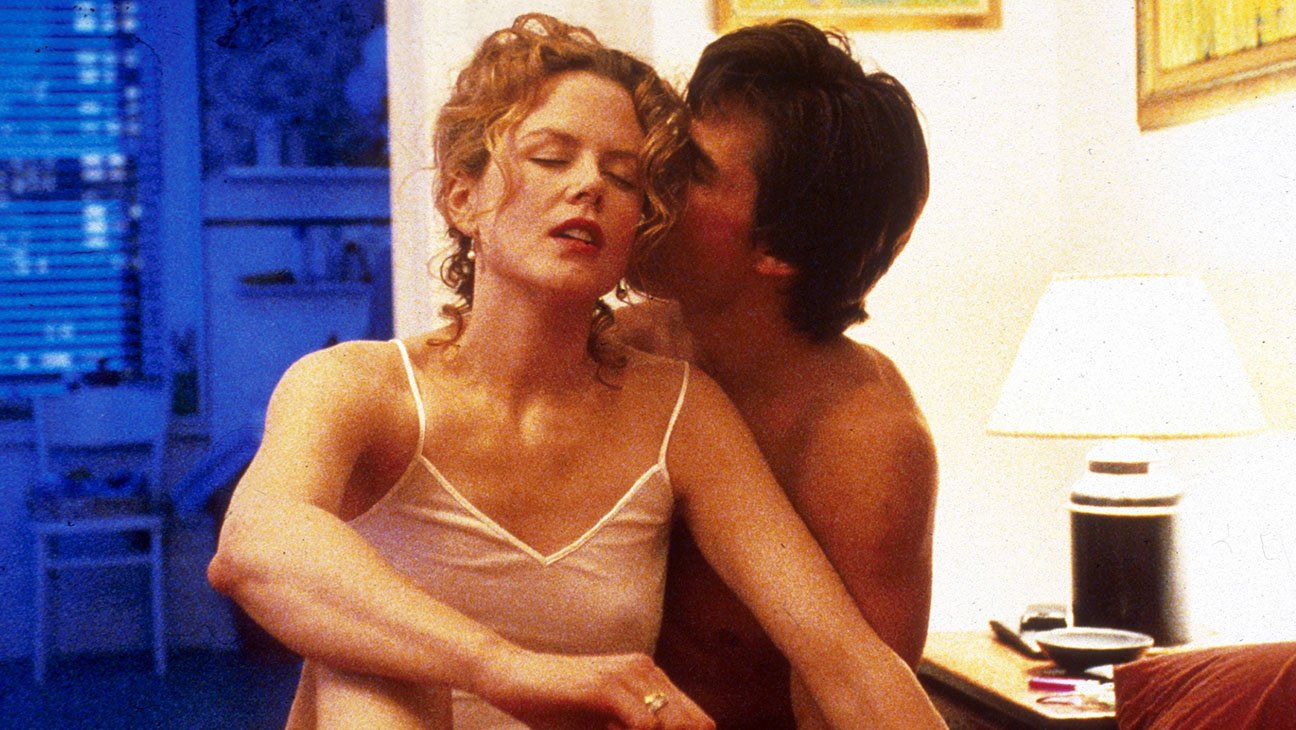
Stanley Kubrick’s epilogue pursues to drag the spectator into a dreamlike quest through subconscious and primitive instincts.
A married man (Tom Cruise) decides to spend two nights visiting the demimonde world of sexual freedom. The places he visits have not the regular aspect of brothels; prostitutes wearing masks, luxury rooms and ambient music pull together an atmosphere of Dionysian ceremonies.
The protagonist observes the ritual terrified. Intensive looks of women provoke his fantasy not with an ordinary sexual way. Returning at at home, he expresses his heightened erotic desire to his wife (Nicole Kidman).
Is it possible for an experienced man, crossing a mature stage of his life, to have unsolved sexual issues? The comprehension of the inner world is an endless procedure. Parameters of sexuality may remain unsolved forever.
A long commitment satisfies particular needs, but the inborn necessities for original experiences and exploration always exist. The awakening of sexual repulsiveness can threaten acquired values of life, demanding personal reconsiderations and a deeper understanding of companionship.
15. Fish Tank (2009)
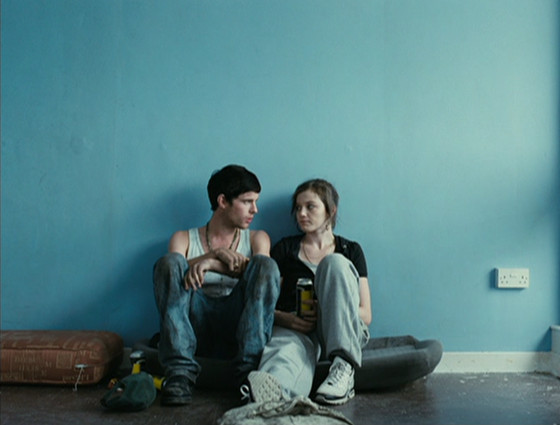
In a provincial town in England, a contumacious girl lives with her indifferent, juvenile mother and a younger sister. Mia essentially strives to get attention in vain. One of her mother’s lovers, Connor, spends a big period of time with them. During this cohabitation, Connor claims a special place in Mia’s life, while he is the only person who cares about her. Mia and Connor spend time together and provoke each other reluctantly. Finally, their relationship becomes physical.
The plot doesn’t mean to describe a teenager in search for a lover. Mia is alone and hurt. In the face of Connor she can see a sensitive, caring person and a handsome man as well. Her approach to Connor is a cry for help, a frustrated request for love and communication, while she uses her immature sexuality as a means for receiving them. An overview of her room, insisting on some old and dusty child items, composes a heartbreaking portrayal of her abandoned young soul. This story unpretentiously illustrates an everyday drama focused on solitary, careless young people.
14. Oldboy (2003)

A man’s life collapses due to the unveiling of a complicated secret. During his school years, a classmate discovered that Oh Dae-su maintained an unusual relationship with his sister. This truth leads the sister to death and Dae-su on a long, tortuous path. After a number of years, the protagonist succeeds in his revenge: he teaches the ones who defined his doomed fate that passionate love and desire flow hearty and have nothing to do with contemporary social stereotypes.
Chan-Wook Park’s most popular film overtakes the narrow-minded and preservative aspects of societies in order to designate the uncompromising humane attributes. Overt violence and sexual scenes, emphasized by the distinctive, breathtaking directing of the Korean filmmaker, definitely provoke and shock the audience, but finally lead to tolerance.
13. Blue is the Warmest Color (2013)
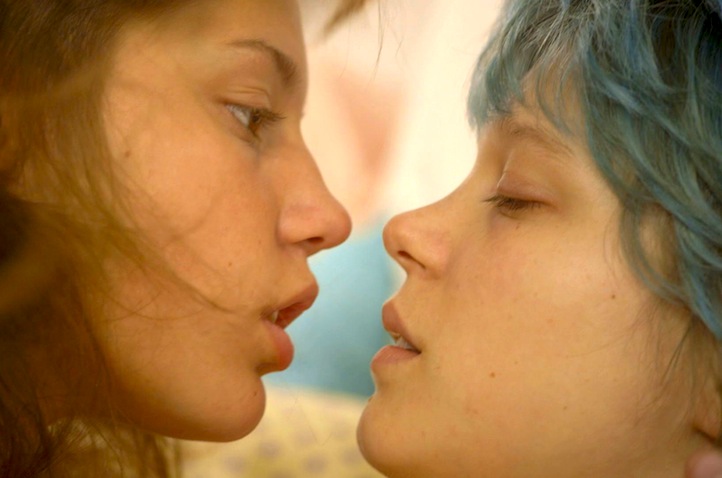
In real life, most romances follow a predestinated course. Excitement and sexual tension are followed by routine, which eventually leads to decay and a tendency for destruction. “Blue is the Warmest Color” patiently follows the life of Adèle, a young girl passing through this course for the first time. Adèle experiments, initiates her sexual life and falls in love; the targeted sexual appetites toward an older lesbian distinguish her from an ordinary girl of her age.
Homosexuality is not the main theme in this film, as is usually assumed; it is just the background. The basic scope is the realistic interpretation of a relationship as it evolves from the sharing of physical pleasure to the next levels, and how ordinary people take action while experiencing them.
It is clear why extensive exposure of intercourse between two good-looking women can draw the attention of the audience. However, the directing style gives plenty of time to more moments that aim to describe the everyday life of the protagonists. Still, the intensive and defining role of the first sexual experiences, the need for sexual freedom, and the indivisible right of personal expression are some of the discussed issues.
12. The Graduate (1967)
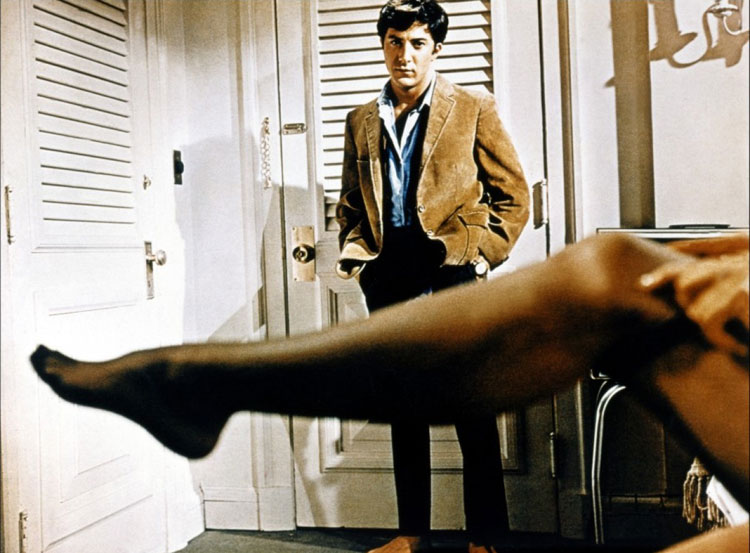
Considered as one of Hollywood’s classics, “The Graduate” deals with the dichotomized approach of young men to sex and romance, pragmatically, classy and with a dose of humor. The value of this movie has been gained over the years, inspiring a lot of young men to explore the substance of manhood.
Benjamin is an ordinary man in his early 20s. There is nothing charming about him, and he lacks in character and spark. Mrs. Robinson, a friend of his parents, carries him away on an affair. Benjamin conceives this experience as his induction into the world of sex, with a practical form; a mature, gorgeous woman teaches him the secrets of pleasure. This perspective is subliminal, in principle. Mrs. Robinson is actually a very attractive woman, feminine, beautiful and dark in one way, as she always passing the time alone with a glass full of alcohol in hand.
Instead, Benjamin decides that he is in love with her daughter, Elaine, whom he barely knows. Finally he dares escape with Elaine from her wedding and she follows him. In the last scene, in the back seat of a bus they sit together and look at each other, speechless. Do they have something to say? Perhaps they don’t.
11. American Beauty (1999)

One of the best films ever made in United States, “American Beauty” makes a breakthrough in the restrained souls of the people in Western world, and furthermore it’s a hymn for youth.
Kevin Spacey as Lester Burnham lives a conventional life, dispute of pleasure and estranged by his wife and daughter. A friend of Lester’s daughter stimulates his senses. The sphere of his fantasy is activated, with the young girl playing the protagonist role. The dull days of the middle-aged man have changed, as he has found a contact point with his lost youth and years of grace.
Through Lester’s conscious arises one of the most iconic scenes in cinema history: the young girl lying naked surrounded by rose petals. The picture is absolutely beautiful, haunting probably, but not vulgar at all; it’s the embodiment of youth, simultaneously innocent and sensual.